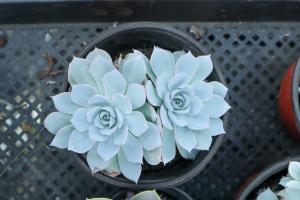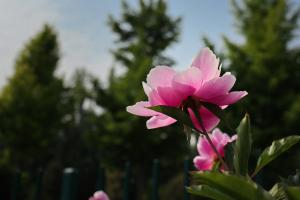Polysaccharides: The Key Components of Plant Cell Walls
Plant cell walls are critical components that provide structural support and regulate interactions between cells. They act as a barrier against external threats and provide mechanical support to the plant. The cell wall primarily consists of three components- cellulose, hemicellulose, and pectin. However, among these three components, cellulose stands out as the primary component of the plant cell wall.
The Role of Cellulose in the Plant Cell Wall
Cellulose is a complex carbohydrate or polysaccharide that is comprised of long chains of glucose molecules linked by 尾-1,4 glycosidic bonds. Within the plant cell wall, cellulose forms arrays of microfibrils oriented parallel to the axis of cell elongation, providing mechanical strength and resistance to turgor pressure. Cellulose is also responsible for giving the plant cell wall its rigid structure and acts as a buffer against external forces.
The Production of Cellulose in the Plant Cell Wall
Cellulose synthesis is a complex process that occurs at the plasma membrane. A protein complex known as the cellulose synthase complex, which consists of several subunits, including CESA proteins, catalyzes the formation of cellulose chains from glucose molecules. The newly formed cellulose chains associate with each other and form microfibrils that are eventually assembled into the cell wall.
Other Polysaccharides in the Plant Cell Wall
In addition to cellulose, hemicellulose and pectin also play essential roles in the plant cell wall. Hemicellulose is made up of various complex sugars and is associated with cellulose microfibrils. It provides structural support to the cell wall and helps protect the wall against degradation. Pectin is a complex carbohydrate that is crucial for maintaining the integrity of the plant cell wall. Pectin can hold water, and its adhesive properties allow it to help cells stick together.
The Importance of Polysaccharides in Plant Cell Walls
The interaction of plant cells with their surroundings is facilitated by the proper functioning of the plant cell wall. Polysaccharides, especially cellulose, play a crucial role in cell expansion, growth, and differentiation. The regulation of the various processes involving polysaccharides is highly complex and is a critical aspect of plant development. Polysaccharides are also essential for the growth of various industrial and agricultural crops.
In Conclusion
The primary component of the plant cell wall is cellulose, which provides mechanical strength and rigidity to the cell wall. This complex carbohydrate is produced through a series of intricate biochemical processes involving several protein complexes. Hemicellulose and pectin, while present in smaller amounts, also play vital roles in maintaining the integrity of the cell wall. A better understanding of the biological mechanisms of polysaccharides will have a significant impact on the growth of plants and promote the development of industrial and agricultural crops.

 how many times do yo...
how many times do yo... how many planted tre...
how many planted tre... how many pine trees ...
how many pine trees ... how many pecan trees...
how many pecan trees... how many plants comp...
how many plants comp... how many plants can ...
how many plants can ... how many plants and ...
how many plants and ... how many pepper plan...
how many pepper plan...





























